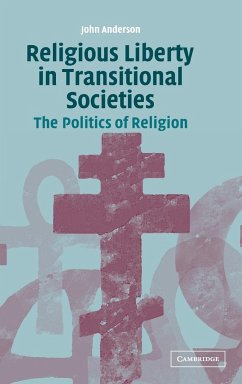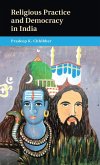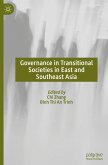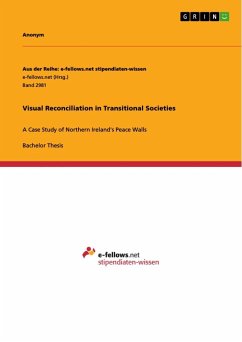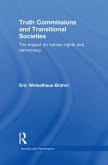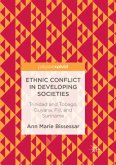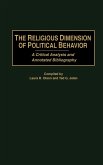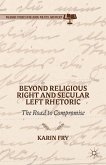Short description/annotation
An exploration of the politics of religious liberty in states undergoing political change.
Main description
It is commonly assumed that the issue of religion declines in political significance as societies modernise. However, the upheaval associated with the shift from authoritarian to more open regimes can be accompanied by a revitalisation of religion. Individuals within these societies are struggling to find meaning in the seeming chaos of political change; religious elites are seeking to define their own role within the new order; and political elites are looking for new ways of ensuring legitimacy and building national unity. In this book John Anderson constructs a theoretical framework where he compares and contrasts the politics of religious liberty in two Southern European countries, two Central-Eastern European countries, and the evolution of the former USSR, particularly Russia. Exploring these issues of religious 'recognition' and religious diversity, Anderson attempts to expose the wider problem of creating a democratic mentality in such transitional societies, through extensive original research and interviews.
Table of contents:
Preface; 1. Introduction; 2. Southern Europe: Spain and Greece; 3. Central-Eastern Europe: Poland and Bulgaria; 4. The former USSR: Russia and the successor states; 5. Justifying religious 'recognition' and/or discrimination; 6. Conclusion: culture, conflict, modernisation and religious liberty; Bibliography.
An exploration of the politics of religious liberty in states undergoing political change.
Main description
It is commonly assumed that the issue of religion declines in political significance as societies modernise. However, the upheaval associated with the shift from authoritarian to more open regimes can be accompanied by a revitalisation of religion. Individuals within these societies are struggling to find meaning in the seeming chaos of political change; religious elites are seeking to define their own role within the new order; and political elites are looking for new ways of ensuring legitimacy and building national unity. In this book John Anderson constructs a theoretical framework where he compares and contrasts the politics of religious liberty in two Southern European countries, two Central-Eastern European countries, and the evolution of the former USSR, particularly Russia. Exploring these issues of religious 'recognition' and religious diversity, Anderson attempts to expose the wider problem of creating a democratic mentality in such transitional societies, through extensive original research and interviews.
Table of contents:
Preface; 1. Introduction; 2. Southern Europe: Spain and Greece; 3. Central-Eastern Europe: Poland and Bulgaria; 4. The former USSR: Russia and the successor states; 5. Justifying religious 'recognition' and/or discrimination; 6. Conclusion: culture, conflict, modernisation and religious liberty; Bibliography.

